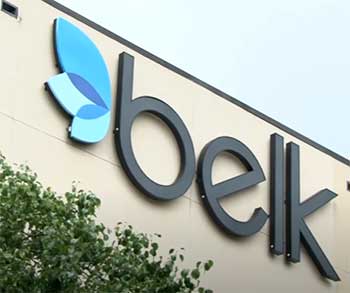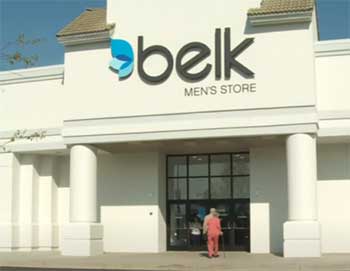Belk is one of the largest department store chains in the American South, with nearly 300 locations across 16 states. The company has built its reputation on providing shoppers with quality merchandise at surprisingly low prices.
But how does Belk manage to keep its prices so affordable? Several factors contribute to Belk’s discount pricing strategy.
Reasons for Belk Being So Cheap
Here is a list of those reasons:
- Belk’s Buying Power
- Lower Operating Costs
- Minimal Advertising Budgets
- Focus on Private Label Brands
- Less Focus on High-End Luxury Goods
- Sales-Driven Promotional Pricing
- Strategic Product Mix
- Lower Price Targets
- Outlet and Clearance Stores
- Lean Supply Chain
- Slow Introduction of New Technologies
- Limited Customer Services
Let’s analyze those reasons in detail.
- Belk’s Buying Power

As one of the largest clothing retailers in the region, Belk has tremendous buying power. The company purchases inventory in huge volumes, allowing it to secure rock-bottom wholesale prices from vendors and manufacturers.
Belk is able to leverage its size during negotiations and buy merchandise at substantially lower costs than smaller competitors. This purchasing power enables Belk to pass significant savings along to its customers.
- Lower Operating Costs
In addition to supply-side savings, Belk also maintains lower operating expenses than other department stores. For starters, Belk focuses on small-to-midsize markets in the South, leasing stores in predominantly suburban strip malls.
This allows them to secure real estate at more affordable rental rates compared to urban flagship stores. Belk locations also require fewer sales associates and lower overhead costs relative to store revenues.
The reduced operating expenses allow Belk to charge lower prices while still turning a profit.
- Minimal Advertising Budgets
Unlike high-end department stores, Belk does not spend heavily on advertising and marketing campaigns. The brand places some TV, radio and print ads in regional markets but eschews big budget national marketing pushes.
This advertising restraint is another reason Belk can offer discounted prices and pass the savings to shoppers. The company relies on word-of-mouth, good value proposition and customer loyalty to drive sales.
- Focus on Private Label Brands
Rather than rely solely on name-brand merchandise, Belk manufactures and sells a number of its own private label clothing lines. Private label brands have lower R&D costs and Belk can control the manufacturing process to keep costs down.
By carrying more store brands, Belk can offer basics and staples at very affordable price points while maintaining healthy profit margins. Private label also promotes customer loyalty to the Belk brand rather than third-party labels.
- Less Focus on High-End Luxury Goods

Belk stores dedicate less floor space to ultra high-end designer fashion than other department stores.
While they do carry some luxury brands, the merchandise mix is focused on mid-tier brands and practical, affordable basics for the average shopper.
By avoiding extensive luxury selections, Belk sidesteps the higher vendor prices and markup of high-end goods.
The savings allows Belk to discount other items that appeal to the mass market.
- Sales-Driven Promotional Pricing
Belk relies heavily on sales, discounts, and promotional pricing to drive store traffic and sales volume. The original retail price is often marked up with the intent of marking it down.
By starting with an elevated price, Belk can offer deeper percentage discounts during weekly and holiday sales events. Customers are trained to wait for the ubiquitous sales, which drums up business while enabling lowered prices on a wide assortment of merchandise.
- Strategic Product Mix
Belk stores utilize a strategic product mix ranging from discounted closeouts to higher priced anchors. The discounted merchandise brings customers in the door while the anchor products allow for bigger profit margins.
Shoppers might come for the deals but then supplement their purchases with higher margin items. This product mix strategy gives customers bargains while driving overall profits. The lower priced items essentially subsidize the rest of the product line.
- Lower Price Targets
For many product categories, Belk aims for popular price points like $10, $20 or $50 when pricing merchandise. Focusing on these psychological price targets reinforces the discount positioning while appealing to the price sensitivity of their customer base.
Belk sets prices just below common benchmarks that consumers have come to expect. This shrewd pricing tactic maintains profit margins while satisfying shopper’s desire for discount prices.
Also Read: Reasons For Plug Tech Being So Cheap.
- Outlet and Clearance Stores
Belk operates dedicated outlet stores and clearance centers that offer steeply discounted merchandise year-round. These outlets allow Belk to quickly move discontinued inventory while maintaining tighter price controls in mainline stores.
The outlet channel also contributes to Belk’s affordable pricing image. Customers associate Belk with bargains when they see the prevalent outlet locations in Belk’s retail footprint.
- Lean Supply Chain
Belk has invested in optimizing its supply chain to minimize costs and enable lower retail prices. The company utilizes a just-in-time inventory management system to reduce warehousing expenses.
Belk has also negotiated favorable contracts with freight carriers to secure low shipping rates for both inbound supply and outbound transfers between stores. The savings from an efficient supply chain get passed directly to customers in the form of reduced prices.
- Slow Introduction of New Technologies

Unlike other retailers who are racing to implement the latest technologies, Belk has taken a conservative approach to adopting things like self-checkout, advanced POS systems, and inventory management tech.
While these innovations require significant upfront investments, Belk has been slow to roll them out chainwide.
The cost savings allows Belk to retain its discounted price positioning.
However, the tradeoff is Belk lags peers when it comes to convenience and integration of modern retail technologies.
- Limited Customer Services
Belk has stripped away many of the services that typify higher-end department stores. For instance, Belk does not offer amenities like personal shoppers, on-site tailoring or beauty services.
While some customers may miss these frills, eliminating them reduces Belk’s operating costs. With fewer built-in services, Belk can funnel more resources into discount pricing rather than specialized customer experiences.
The minimal services reflect Belk’s mass-market appeal and discount-driven business model.
Also Read: Reasons Why I Prefer 27ESTORE.
Frequently Asked Questions (FAQ)
Belk is considered a good brand for shoppers focused on affordable prices. While Belk may lack the prestige and trendiness of high-end department stores, it delivers solid value and consistent savings on a wide array of merchandise. Belk’s private label brands offer basic apparel staples at very wallet-friendly prices. Customers can count on periodic sales and specials to bring prices even lower. For budget-conscious shoppers, Belk is regarded as a decent brand for the prices.
Belk gives back to local communities in several ways that provide social value beyond retail shopping. The company allows local non-profits to sell $5 discount tickets as a fundraising vehicle. Belk also administers scholarships for students in markets it serves. The Belk Foundation has given over $17 million in grants supporting education, health, and human services. So in addition to affordable prices, Belk creates good by funding local causes that improve lives.
In terms of brand positioning, Belk is most equivalent to other regional affordable department store chains like Boscov’s and Bon-Ton. It occupies a similar market niche as the lower-priced Kohl’s, though with a more limited geographical footprint. Belk competes directly against JCPenney in many locations as a mid-tier affordable department store. It lacks the high fashion and prestige of brands like Nordstrom, Saks, Neiman Marcus and Bloomingdale’s. For the best combination of price and selection, Belk is positioned similarly to Macy’s within its core southern markets.
Belk has a reputation for offering shoppers quality merchandise and name brands at budget-friendly price points. It is best known for department store staples like apparel, shoes, handbags, jewelry, home goods and beauty at lower prices. Belk frequently runs sales and promotions both in-store and online to drive value. The company is also known for its Belk private label brands of clothing, bedding, cookware and other merchandise that allow even greater savings. Overall, Belk built its identity on providing a department store experience with discounted pricing.
Wrapping Up
In summary, Belk leverages its scale, cost controls, promotional pricing, strategic merchandising and outlet stores to maintain an affordable price positioning in the regions it serves. The combination of these factors allows Belk to offer customers consistent discounts while driving profitable growth.
While Belk may not be the trendiest fashion destination, bargain-hungry shoppers can count on Belk for solid savings on clothing, shoes and home goods. The company’s buying power, operational efficiency and sharp pricing tactics provide customers excellent value across its store network.



